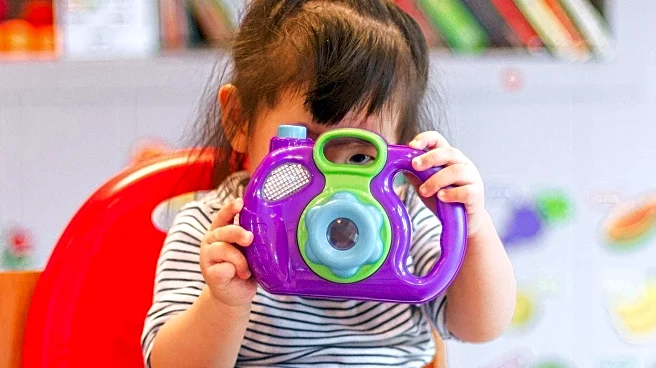What's Happening?
A study conducted by researchers at Oregon State University and Utrecht University has found that parenting experienced in early childhood significantly influences how individuals parent their own children.
Analyzing data from over 12,000 families, the study suggests that children raised with acceptance face fewer challenges as parents. The research highlights intergenerational links in parenting behaviors, noting that children who experienced negativity tend to struggle more in their parenting roles. The study aims to clarify mixed findings from previous research on the transmission of parenting styles across generations.
Why It's Important?
The findings of this study are crucial for understanding the long-term impact of parenting on future generations. By identifying the conditions under which parenting styles are passed down, the research provides valuable insights for parents and policymakers. It emphasizes the importance of positive parenting in early childhood, which can lead to better outcomes for children as they become parents. This knowledge can inform parenting programs and interventions designed to break cycles of negative parenting, ultimately contributing to healthier family dynamics and societal well-being.
What's Next?
The study's authors suggest that parents who did not grow up with positive role models should seek support from partners, friends, and family to avoid repeating negative patterns. The research may lead to further studies exploring specific interventions that can help parents improve their parenting skills. Additionally, the findings could influence the development of educational programs aimed at promoting positive parenting practices. As awareness of the study grows, it may encourage more parents to reflect on their parenting styles and seek resources to enhance their approach.
Beyond the Headlines
The study raises important considerations about the broader implications of parenting on societal structures. By highlighting the intergenerational transmission of parenting behaviors, it underscores the need for comprehensive support systems for families. The research also challenges traditional views on parenting, suggesting that early childhood experiences have a lasting impact that extends beyond immediate family dynamics. This perspective may lead to a reevaluation of how parenting is addressed in public policy and community programs, emphasizing the importance of early intervention and support.










